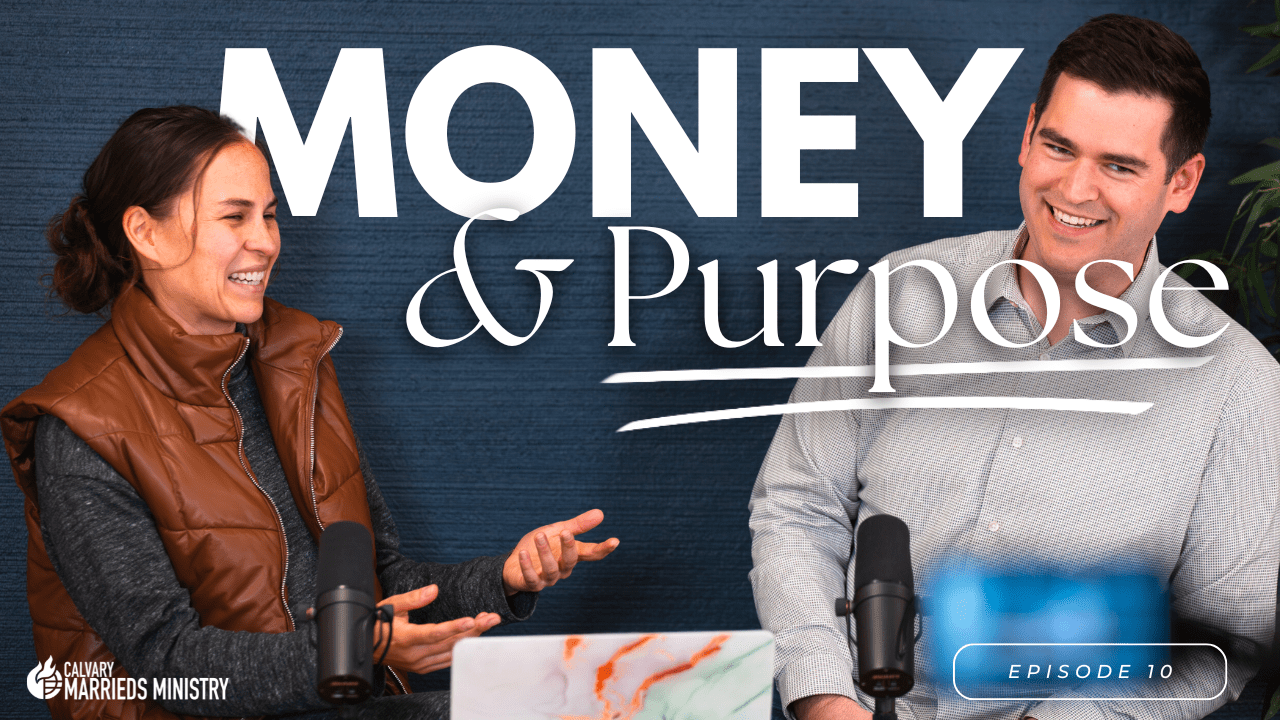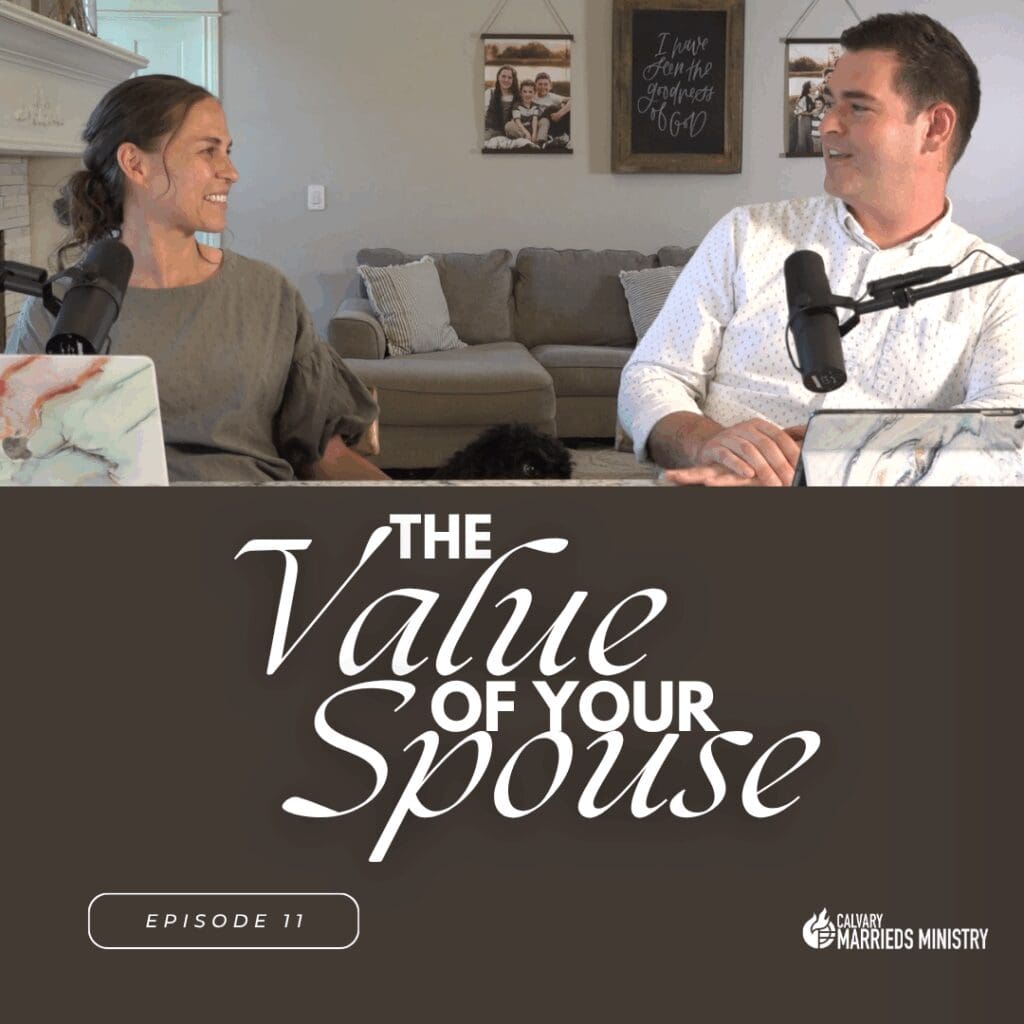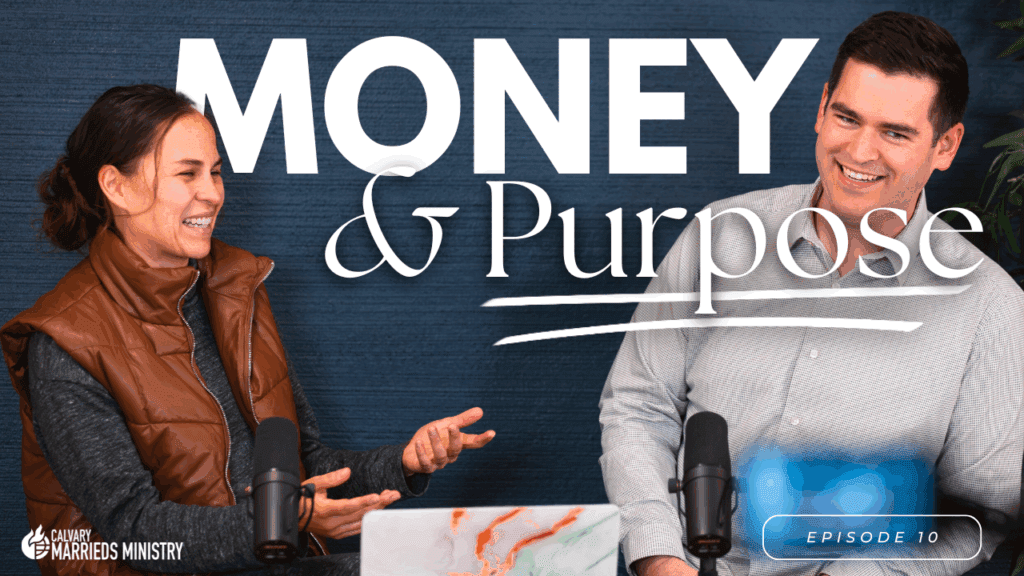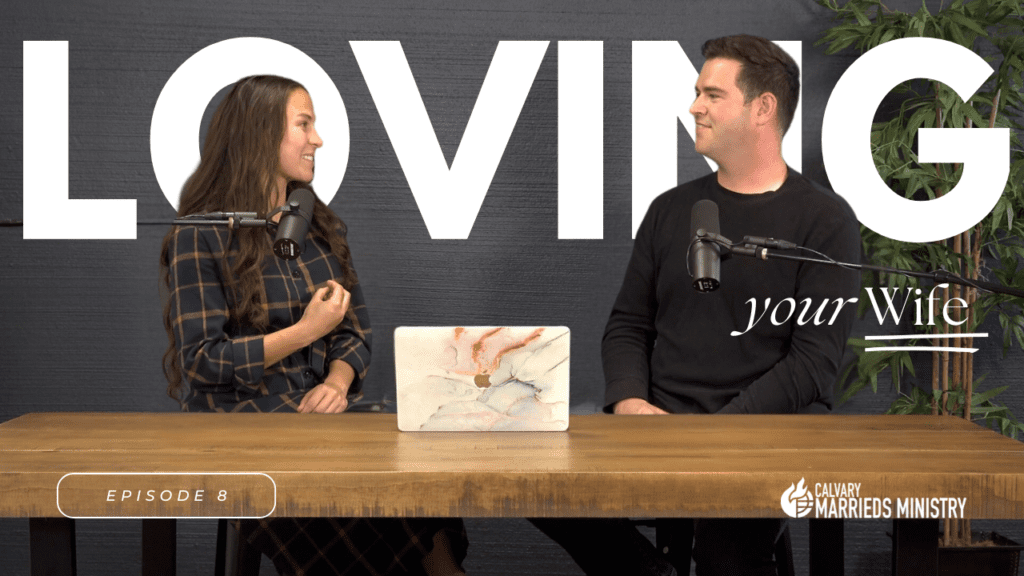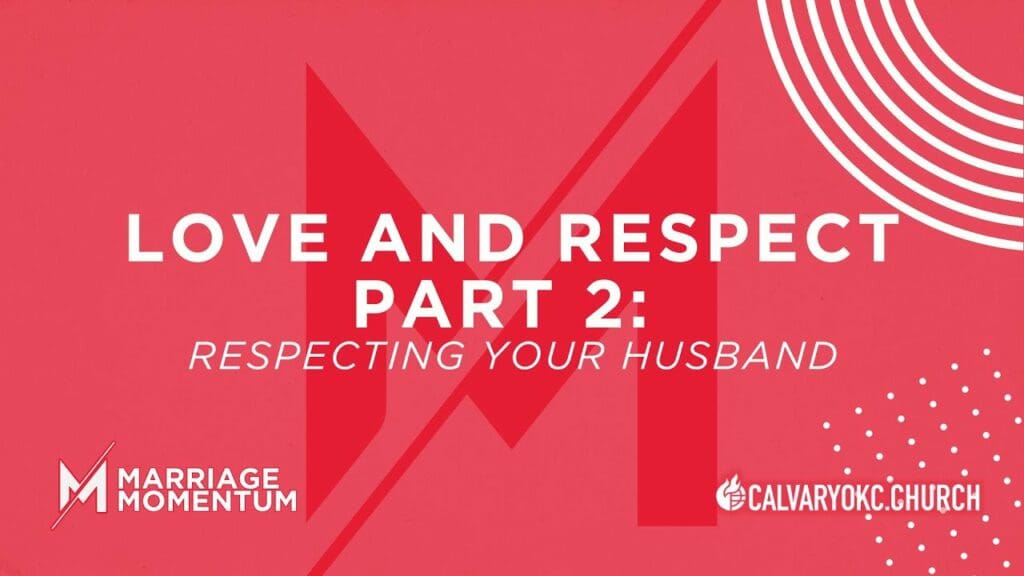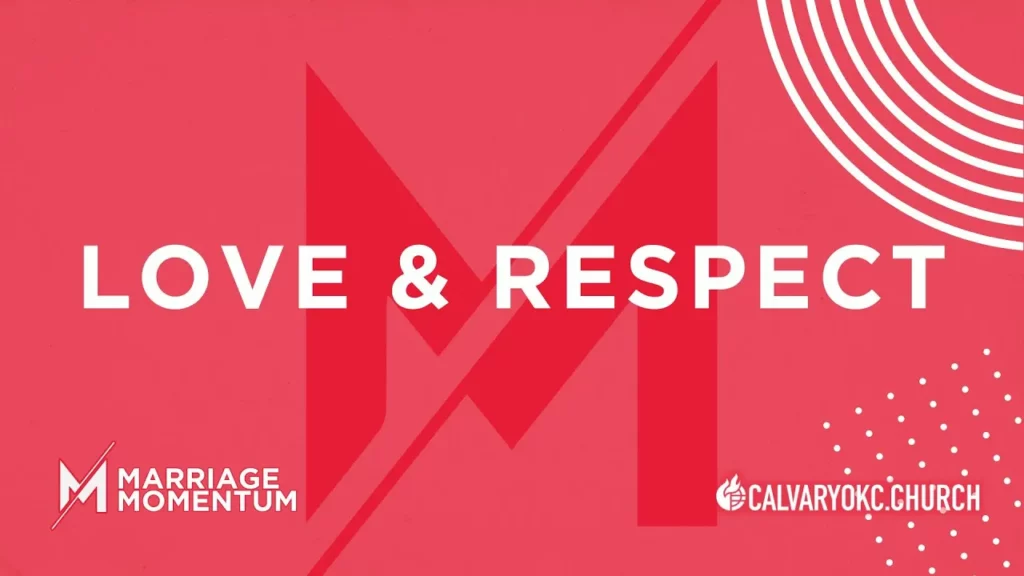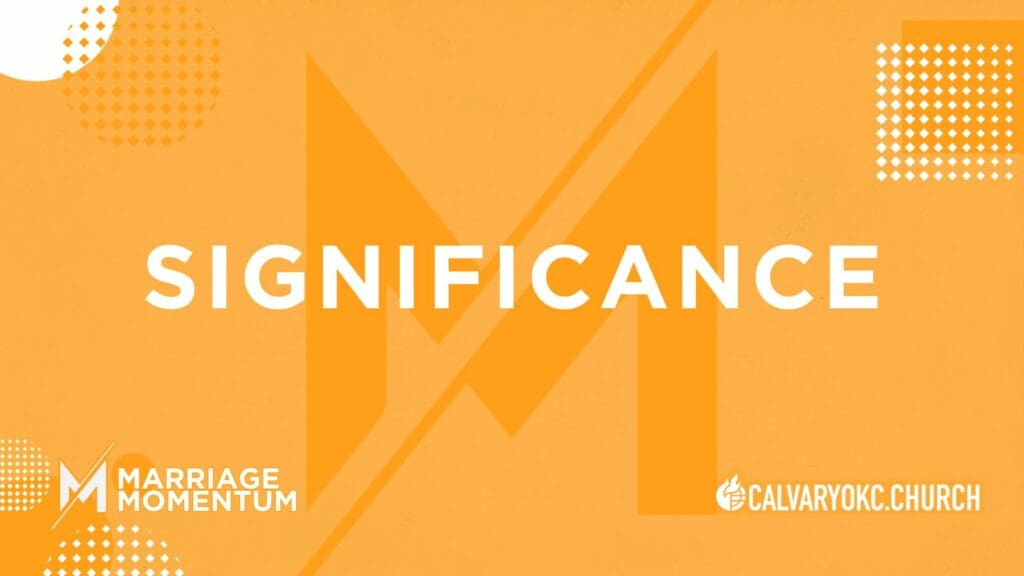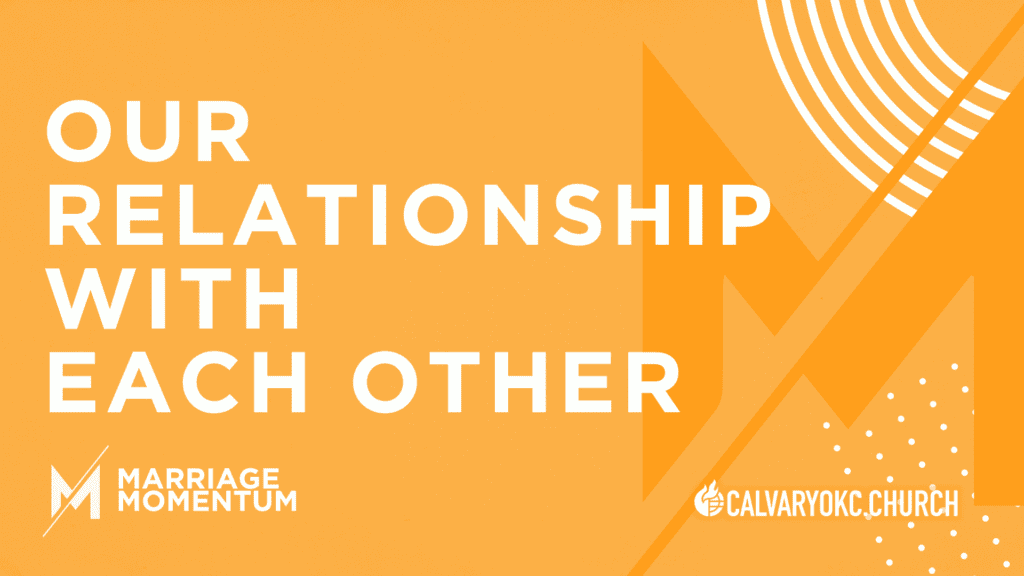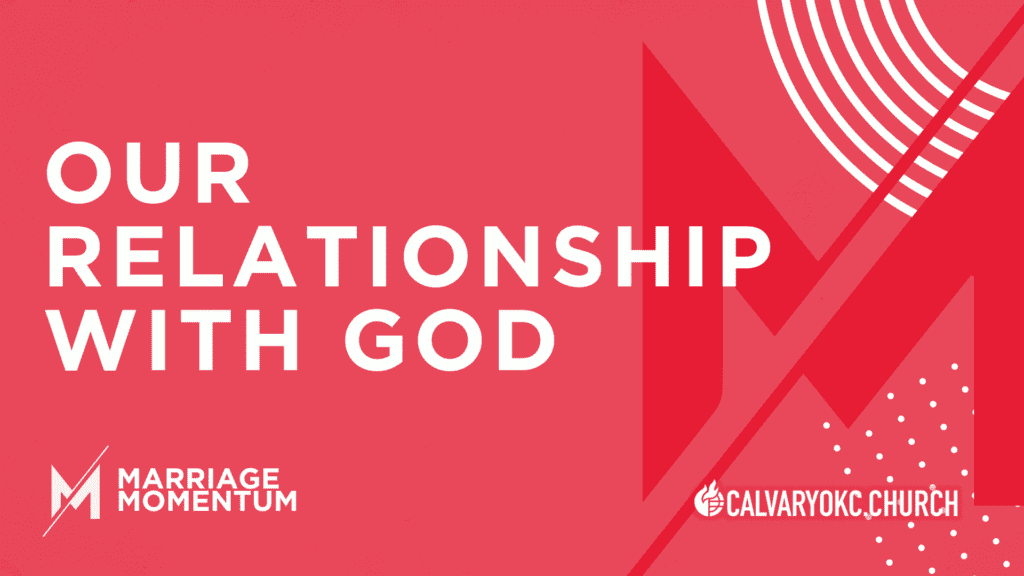More Momentum
Filter
Summary
In this episode, Tommy and Kayla Berridge unpack how finding purpose is the key to breaking free from financial frustration. They explore how discipline, goals, budgeting, and contentment all flow from a deeper understanding of your God-given purpose. Whether you’re just surviving or aiming to thrive, this episode is packed with practical wisdom and faith-based encouragement for your marriage and money.
Key Moments:
-
00:01:05 – Why purpose is the toolbelt that holds every financial principle together
-
00:03:15 – “My purpose is to provide for my family”
-
00:06:02 – Purpose is found in pursuit, not perfection
-
00:11:06 – “Money exaggerates who you already are”
-
00:15:32 – Why consistency beats intensity when building financial habits
-
00:20:02 – Getting practical: Know your income, know your spending
-
00:25:02 – Real talk about budgeting in marriage
-
00:26:30 – How comparison drains your purpose and steals your peace
-
00:33:02 – Imagine your giving potential without debt
Discussion Questions:
Bible Reading
1. Psalm 119:105 – “Your word is a lamp to my feet and a light to my path.”
2. Matthew 6:33 – “But seek first the kingdom of God and his righteousness, and all these things will be added to you.”
3. Luke 16:10 – “One who is faithful in a very little is also faithful in much, and one who is dishonest in a very little is also dishonest in much.”
Observation Questions
1. According to the sermon, what is the difference between finding purpose in a job title or paycheck and finding purpose in providing for your family? ([03:15])
2. What does the Bible mean when it says God’s word is a lamp to our feet and a light to our path? How does this relate to discovering our purpose? ([06:43])
3. What practical steps did the sermon suggest for breaking out of stagnation in life or work? ([08:57])
4. How does the sermon describe the role of discipline in managing finances and life? ([11:40])
Interpretation Questions
1. Why do you think the sermon emphasizes that purpose is found in pursuit, not in a position or paycheck? How does this challenge common ideas about success? ([03:15])
2. In what ways does seeking first the kingdom of God change the way we approach our finances and daily responsibilities? ([06:43])
3. The sermon says that discipline and consistency are more important than intensity for lasting change. Why is this true, especially in the area of finances? ([15:40])
4. How can comparison and debt rob us of our sense of purpose and peace, according to the sermon? ([25:18] / [30:33])
Application Questions
1. Think about your current job or daily responsibilities. Are there areas where you’ve been looking for purpose in the wrong place? How can you shift your focus to God’s calling for you right now? ([03:15])
2. Is there an area of your life where you feel stagnant or stuck? What is one small step you can take this week to get moving and grow, even if it’s uncomfortable? ([08:57])
3. When it comes to your finances, do you tend to rely on bursts of effort or on consistent habits? What is one small, consistent change you could make this month to steward your resources better? ([15:40])
4. If you are married, how often do you and your spouse talk openly about financial goals and decisions? What is one conversation you need to have this week to get on the same page? ([17:43])
5. Have you ever made a financial decision because you were comparing yourself to someone else? How did that affect you? What can you do to guard your heart against comparison in the future? ([25:18])
6. Are there areas where you are tempted to go into debt to have something now instead of waiting? What would it look like to practice patience and wisdom in those situations? ([30:33])
7. Imagine what your life and your family’s impact could be if you were free from debt. What is one step you can take toward that freedom this year? ([30:33])
—
Closing Thought:
Remember, flourishing in marriage and finances isn’t about what you can get, but about what you can pour into your family, your marriage, and God’s kingdom. What is one thing you can pour into someone else this week?
What area of your finances causes the most stress or confusion—and what’s one step you can take this week to bring it into alignment with your purpose?
Share your experiences in the comments or reach out to us at marrieds@calvaryokc.church.
Five-Day Devotional
Day 1: Purpose is Found in Pursuit, Not Position
True purpose is not something that suddenly appears or is tied to a specific job or title; rather, it is discovered and unfolds as you actively pursue what God has placed before you each day. When you move forward, even in seasons that feel mundane or frustrating, God uses your steps of faith to reveal more of your purpose, lighting your path just enough for the next step. Instead of waiting for a grand revelation, trust that as you pursue God and the responsibilities He’s given you—whether providing for your family or serving faithfully in your current role—He will grow your sense of purpose and fulfillment.
Psalm 119:105 (ESV)
“Your word is a lamp to my feet and a light to my path.”
Reflection: What is one area of your life where you’ve been waiting for clarity or purpose before taking action? How can you take a step forward in faith today, trusting God to guide you as you go?
Day 2: Seek First the Kingdom – Align Your Pursuit with God’s Priorities
When you make seeking God’s kingdom and His righteousness your top priority, everything else in life—including your finances, opportunities, and sense of purpose—falls into its proper place. Pursuing God first means letting His values shape your decisions, your work, and your goals, rather than chasing after money or status. As you align your daily pursuits with what matters most to God, you’ll find that He provides for your needs and opens doors you could never have orchestrated on your own.
Matthew 6:33 (ESV)
“But seek first the kingdom of God and his righteousness, and all these things will be added to you.”
Reflection: In what practical way can you put God’s kingdom first in your decisions or spending this week?
Day 3: Faithfulness and Discipline – The Key to Godly Stewardship
Being a faithful steward of what God has entrusted to you requires discipline, not just desire. It’s not about how much you have, but how you manage and multiply what you’ve been given. Consistent, disciplined choices—like budgeting, saving, and giving—prepare you for greater opportunities and blessings. Remember, success is not about sudden windfalls or intensity, but about steady, faithful action over time, even when you don’t see immediate results.
Luke 16:10 (ESV)
“One who is faithful in a very little is also faithful in much, and one who is dishonest in a very little is also dishonest in much.”
Reflection: What is one small, consistent financial habit you can start or strengthen this week to grow in faithfulness?
Day 4: Comparison Steals Contentment and Purpose
Measuring yourself against others—whether in career, possessions, or financial status—leads to discontentment and can deflate your sense of purpose. Comparison distracts you from the unique path God has for you and can drive unwise decisions, like overspending or taking on unnecessary debt. Instead, focus on gratitude for what God has provided and stay committed to your own journey, trusting that God’s plan for you is good and purposeful.
2 Corinthians 10:12 (ESV)
“Not that we dare to classify or compare ourselves with some of those who are commending themselves. But when they measure themselves by one another and compare themselves with one another, they are without understanding.”
Reflection: Where have you recently felt the pull to compare yourself to others? How can you shift your focus to gratitude and your own God-given purpose today?
Day 5: Practical Stewardship – Budgeting and Teamwork in Finances
Wise stewardship means being intentional and practical with your resources, starting with a budget that reflects your values and priorities. Budgeting is not just for those in financial trouble; it’s a tool for everyone to direct their money purposefully, give generously, and plan for the future. Especially in marriage or partnership, open communication and agreement about finances are essential for unity and success—working together as a team ensures you’re both moving toward shared goals.
Proverbs 21:5 (ESV)
“The plans of the diligent lead surely to abundance, but everyone who is hasty comes only to poverty.”
Reflection: If you haven’t already, can you set aside time this week to sit down—alone or with your spouse—and create or review a budget that reflects your shared values and goals?
Transcript
Hey, this is Kayla, and I’m Tommy. And welcome to Marriage Momentum podcast. The goal of this podcast is to help your family flourish by making your marriage whole. Yeah. So purpose is what unlocks your motivation in order to just to move forward, to get stuff done. And now before you’re like, man, this is about money. Like, why are we talking about purpose? Because it really is the central, central force behind everything that you do. And we want to spend some time here and talk about it because it really does affect every area of your life, specifically your money. It really does play all into it.
So with purpose, I want to share a story. When we first moved here, you know, as a brand new state, and it all happened pretty quick. Okay, brand new state, new friends, new environment, new job. And it was really starting from the ground up. So I was hired to bring structure to a very chaotic situation. Honestly, let’s just be honest about it. And it was very high paced. It was very frustrating. And I was, I was very frustrated each and every day at work. And a lot of it came from because I was, I was, felt like I was working my brain to the bone, if that’s even possible. And I didn’t feel like I had any, any purpose in it. I wasn’t passionate about keeping, keeping wind turbines spinning. You know, like that wasn’t my passion. My passions and what I felt like my overarching purpose should be, that I’m pursuing, is filling the kingdom of God with lost souls coming in and building leaders and inspiring people to change their lives and all of that.
And there I was working day in and day out, keeping wind turbines running and kind of cleaning up a mess that somebody else made. And it was very frustrating. And we would hear things of, you know, you’ve got to get a purpose. You’ve got to find purpose in everything that you’re doing. And though it was so right, a word from God, it was hitting that frustration inside of me. And I was going, oh my goodness, I am super not passionate about that. And then I’d hear stories of, if you don’t love what you do, you need to quit and find what you do. And I’m like, I got bills I got paid. Like, I can’t do that right now.
So anyways, I was sitting there one day filled with frustration, and God so ever lovingly and mercifully switched the light in my mind. And I was like, Tommy, your purpose is not to keep wind turbines running. Your purpose is to provide for your family. It’s to put a roof over their head. It’s to put food on the table. That’s your purpose. And it totally transformed my perspective at work.
And that’s the other thing too. Yeah. Purpose in giving, purpose in blessing others with your finances. Like, yeah, your purpose is not a paycheck. I want somebody to grab hold of that. Your purpose is not a paycheck. Correct.
And so, going in with that, we get purpose backwards. Okay. Your purpose doesn’t show up on your front door and slap you across the face and you go, oh, that’s what I’m supposed to be doing. Okay. You know, we dream and man, should we ever dream and we should dream big, but purpose is truly found in the pursuit. It is found in pursuit. Whatever you’re pursuing, pursuing. You know, if you wake up every day and you’re like, man, I’m just going to play video games till my heart’s content. Well, guess that’s what’s what you’re pursuing. And your purpose for your life at that moment is going to be just playing video games. That may not be your intent, but it’s what you’re pursuing. And so whatever you’re pursuing is going to ignite your purpose.
But that’s also what happens in life is when people walk around aimlessly or don’t know what to do. And even in the situation that I was in, I had lost focus of what my purpose was. And what was happening is it was hindered because my pursuit, I wasn’t pursuing after the things I should have. Your purpose is found in what you are pursuing, not the other way around. You cannot wait for purpose to show up, and then you begin to pursue after it. You got to move forward. And what God’s going to do is he’s going to step in the middle of that, and he’s going to begin to unfold your purpose. As scripture says, his word is like a lamp unto our feet and a light unto our path.
Last time I checked, lamps don’t light the whole path of life years into advance. You know what it lights? Just a little bit in front of you. And in that pursuit of God, in that pursuit of what he’s placed on your heart in that day, you will find purpose. It will begin to grow. It will unfold. You’ll have different motivations, different places in life. Okay. But purpose is the overarching piece of it. Because when you pursue things in life with purpose, God will unfold blessing in your life, especially—and this is the key part of it—seek ye first the kingdom of God. Your pursuit has to be wrapped up into what he’s asked you to do. Seek ye first the kingdom of God and his righteousness, and all these things—opportunities, chances, jobs, whatever the case is—will be added unto you.
But again, going back to it, your purpose is not a paycheck. Because I had just as much purpose when I was working at Best Buy, barely making ends meet, as I do now supporting a family. It had nothing to do with a dollar amount in the bank. It had everything to do with my pursuit of what God has placed in front of me.
Okay. So you look at stagnant water. It’s because it’s not moving. It’s stagnant. So stagnation in life is really just a direct reflection of immobility. Not moving in life is really not an option. Sure. It’s an option. It’s an option. Okay. Let’s clarify. Not going anywhere with life is an option. But nobody wants to die knowing that they just flat didn’t do anything in life. You know, like our overarching desire in life is to do something. And that’s, that’s God-given.
Well, nobody wants to… yeah. Okay. So the perfect… okay. If you find yourself in a stagnant season, if you find yourself, you—
You know, ranging from like, I’m, I don’t have a job, making any money, to, you know, I’m making good money, but I still feel stagnant. You can find yourself in stagnation in anywhere in life. If you find yourself stagnant, get moving. You’ve got to move. You’ve got to flow.
So what is the practical approach to getting rid of immobility? Okay. So practically, it means if you have the opportunity to work and you’re not working, get out there and get a job. I had a, I had somebody in my life tell me one time, they’re like, well, if you’re not running the business in three months, you just need to move on because you’re better than that. Like, don’t, don’t listen to that. Work hard with the opportunity you have, and God will take care of it. God will unfold it. So that’s where you start. If you don’t have a job, get a job.
Okay. Perfect. Work. If you have a job, pour everything you are into that job. You know, give, give it your best. Keep working, find purpose and greater things than just the paycheck clocking in and out. Oh, it’s Monday. You know what? Pour yourself into it.
Okay. What you need to do in this season is you grow. You grow yourself. And because there was a statement that was told to me a couple of months ago, and it was, “Progress is doing.” So if you grow yourself, if you grow your being, if you dive into the Word of God, if you dive into books that challenge you to become better, if you’re going to do all of these things—and we’ll talk about discipline here in just a minute—when you grow yourself and develop yourself, when God opens those doors, you’re going to be ready to walk through them and not be like, oh man, I should have. No, you’ll be ready to walk through them. And I’m going to tell you, when you’re ready, God will open the door.
That’ll kill you. Flesh-eating bacteria. A bigger giver. A bigger giver. Yes. Yeah. Yeah. That’s so good. And again, like you said, yeah, purpose—the tool belt. This is the first thing, but it empowers. It brings structure. Discipline is empowered by your purpose, and it moves you forward and propels you.
So here’s the other thing too about discipline. It, this place so just ingrains into money because we’re called to be stewards. It’s required of a steward to be found faithful. That’s what scripture says. Okay. And so we’ve got to be disciplined. Faithfulness requires discipline and all of those things.
There’s so many times in life—and I’ve thought it, man, have I ever thought it—if I just make more money, I just had more money, it would all be okay. Now, the reality is, look up the statistics: over 80% of people that come into wealth overnight—through the lottery, inheritance, whatever the case—is that they become rich overnight. 80% of those people file for bankruptcy within two years. That is a direct reflection of—it’s not an income issue. It’s a what? It’s a discipline issue. To manage what we have now.
Scripture also teaches that he who is entrusted with much will be entrusted with more. So if we show ourselves faithful, the talents—the parable of the talents—the man who was handed five and produced ten, and the one who had one and buried it—God took that one and gave it to the one with ten. Like, if we’re stewards, God will bless that. If we are disciplined enough to multiply.
And when you think about it in simple terms—like, if I say no, and we’ll talk about goals a little more in just a bit—when you look at it, okay, I’m saying no to the coffee now so I can go on vacation. That’s an easy one. Like, that’s an easy no. Where it’s going to go? It directly affects your future.
Yeah. Man, it does, it ever. And right now, at the time of this podcast recording, we’re in January. The gyms are filled with people, either renewing their gym memberships that they’ve had year over year, or starting to say they’re going to work out. They talk about “Quitters Day”—it’s only like two and a half to three weeks into the month when most people end up quitting. And you still have those that continue because discipline and success is not about intensity. It’s about consistency over time. And that plays directly into your finances.
When you begin to deny yourself, you’re not going to see, “Oh, I said no to the $5 cup of coffee. Wow, I’ve got a million dollars in my bank now.” No. You have five dollars. But it begins to accumulate, and that consistency over time will begin to grow. And then all of a sudden, you see that success. That success builds momentum. And then you continue to go forward, and you go forward, and I can do this. I can do this. And it grows from there.
Okay. But at the very beginning, you may not see the progress. You’re just going to feel the pain. But you will reach a point where that pain turns into reward, and that’s what motivates you to keep pushing through.
Day by day. You know, like, what are we doing? What are you doing to get there? Yes. Your goals have to be aligned. They have to be. And every decision is not an individual decision. Whatever money I spend directly affects you. And so if I have goals tied around where I want money to go in marriage, it’s going to directly affect you.
And so, yeah, if we’re not on the same page, we’re not going to be pulling in the same direction. And guess what? Your goal is not going anywhere. But that’s where those conversations can be very beneficial in a relationship because I can’t tell you how many times I’ve come to you and I’ve thrown a dream out there—whether it be financial, whether it be what I want to do in life, where I want to go, where we want to go on vacation, or whatever the case is. And you have asked me, “Yeah, I’m with you. What are we doing to get there?” You know? And what it does is, initially, it was deflating. It was like, well, just, it’s just going to happen.
So there’s a statement about goals that says goals are just dreams with work boots on. It’s what gets you to your dreams. It’s the work. And goals need to be achievable. I need to say this for all of you to hear: goals need to be achievable. Build off of them, though. If you’re like, “Hey, I want to save a hundred dollars this month,” and you do, and you still have two weeks left, save $125. Keep it going. Keep the momentum going.
Okay. So, tying this into the next piece we’re going to talk about—because this is a reality in life—there seems to be, and I just heard this the other day, apparently it’s a cool thing to not know how much money you make, like to just never have to check your bank account. Well, it’s almost like this…
So there’s two things in order for you to even set financial goals: first, you need to know how much money you make. Okay? And second, you need to know where you’re spending your money. This is where, guys, we’re getting down into the very practical side of this thing. That’s how you set goals: you first have to know where you’re at and what you can do.
So that brings us perfectly into the next tool: what everyone’s worst word when it comes to finances—it’s a budget. And some of y’all are turning us off right now or whatever the case is. Okay. You got to get a budget. You’ve got to set a budget.
And I want to tell all of you that are like, “Well, I’m not that broke that I need a budget.” A budget doesn’t mean you’re broke. Okay? It doesn’t mean you’re broke. For some reason, there’s a stigma around it—like, well, you got a budget because you’re broke. No. You need a budget to tell your money where to go.
It’s concerning. If we can find a burrito tree, let’s go for it. I mean, I’m all for it. No, you’re right. I mean, it really is staggering when you sit down and really put together where you spend your money. Because that’s the other thing, too: day to day, it doesn’t feel like a lot. It doesn’t feel like a lot.
Let’s talk about the practicality side of it, okay? Because there’s people out there—I understand—you go out to eat every day for lunch at work because that’s just so much easier than packing a sandwich. Who wants to pack a sandwich? Now, I’m going to throw out a low number. Let’s say that you eat lunch every day for $10 a day out. You’re not going to get lunch for $10. Okay? But this is just to do easy math—that’s $50 a week, which is $200 a month that you’re now spending on lunch. Let that sink in for just a second.
These, again, are practical things that you can do. And I’m going to give you a high-level idea of what it should look like: number one, list on your budget has to be giving—10% immediately. That’s the first line item on your budget. Then, from there, obviously, you got to pay your mortgage. You got to have a place to live. You got to have food. And then you begin to set it from there.
And you can make it as flexible as possible. And again, husband and wife, as you’re listening to this podcast, you cannot start a budget and hold somebody to a budget that does not agree to be held to it. This is a team effort. You have to sit down and both agree and talk through it. Husband, you may not want to, but you need to. You desperately need to be on the same page.
Yeah. I want to buy gas for my car. I don’t know. What do I buy? Jeans? Let’s go with that. I actually—there are a lot of lights in our house. It’s in there. It’s in there. So, yeah, even get down to the practical, but have this conversation together. Could it be super seamless when you first sit down and do it? Sure. It could be. It could be. But I’m going to give you a fair warning: it may not be.
That’s what practical stewardship looks like, too. Yeah. It says, “But when they measure themselves by one another and compare themselves with one another, they are without understanding.” The King James literally says, “they are not wise.” Yeah. When you compare yourself one to another. Yes.
Because I can’t tell you how many times—and this is a point of vulnerability, but I know this is going to hit hearts out there—I can’t tell you how many times I have been, you know, headlong into my purpose and headlong into what I know I’m supposed to be doing on the daily or whatever the case is. Again, even down into finances, been perfectly content with the things God has blessed me with. Okay. But then all of a sudden, I look over here and I see somebody’s success in their career at this point, or I see somebody excelling in this area that I’ve gone to school with, or I just, I just was able to save up enough money and I bought this. But then, you know, my best friend bought the newest model of that thing or whatever I got. It’s human nature when we see those things to instantly look at them and think, and now compare. Have versus them.
And you’re right. I have watched it begin to deflate my purpose in life. I start losing focus again of, well, why am I even trying? Why am I even doing these things? Okay. Now, does that mean you just shut everybody out and you don’t look at it? No, no. Because, yeah, so calling the elephant out in the world—the first elephant in this world that we called out—is comparison. Okay. The second one we’re going to call out is debt.
And now, again, before you’re like, “Well, this guy’s old,” just hold on. We’re talking about the practical side of it. Okay. What is debt? Debt is borrowing money you don’t have with the intent to pay it back—with extra interest involved—to give the person back what they loaned you, plus some extra.
Again, I want to say this: it is biblical that if you take a loan, you will pay it back. Just putting that out there.
Now, why do we take debt out? Being very straightforward: because we don’t have the money now, but we want it now. And now, I’m not saying that you’ve got to wait until you have cash to buy a house—that would be great, that would be fantastic. But, yeah. Sure.
Okay. So again, you’ve got to be wise about it. But the problem is, when you look at life and run the numbers—right now, the average American sits with almost $9,000 in credit card debt per household across the United States. And again, a lot of it is driven by comparison. Student loans are out of this world right now, and a lot of that is because people are discontented with going to schools close by that they can try to work through and pay cash for. Whatever the case is. Correct. It’s all the things that we’re fed.
And again, are all of these things wrong? No. But we’ve got to be wise with what we do with them. A good rule of thumb is: if you don’t have money to pay for it in cash, don’t buy it. Don’t buy it. That will help you out a lot.
Yeah. Correct. Yeah. Don’t ever let comparison be the motivation for a purchase. Yeah. I heard a statement one time, and we’re going to close with this: for finances, somebody said one time, and they threw it out there, and everyone just began to meditate upon it. It was, “Think about how much the people of God could give to the kingdom of God if no one had debt.”
Conversations and wins with your finances. Amen.
Okay. So for our game, producer Kristin has a list of questions that we are going to answer: deal or no deal. So she’s going to put a situation in front of us, and we have to say, “Deal—I would spend that money,” or “Absolutely not.”
Deal. I would never spend that money on that. No deal.
A single thing that I need at Dollar Tree. I’ll worry about that at Christmas. For those that don’t know what Metro Merch is, it’s one of those dump bin stores where they get all, I guess, the returns from Target and Amazon, and they just dump it all over the place. Okay, so a twenty-dollar mystery box from Metro Merch—and twenty dollars is a lot. Either you get really cool stuff, or you could get expired medicine and half-used tissues. I feel like if it’s… I’m going to say no deal. I’m going to say no deal. We probably wouldn’t end up using it. That’s a free seventy-five dollars we wouldn’t have spent. We wouldn’t have spent fifty dollars.
I don’t go to steakhouses. A deal. I’m going to play devil’s advocate—eighty bucks is a lot, but you can give four. That’s four Christmas presents already knocked out. It’s Christmas, and you can keep four candles for yourself. The world’s finest chocolate with almonds in it—you don’t eat those, y’all. I don’t eat them. Yeah, they’re good—the dark chocolate ones. Yeah, yeah. No, but I’m saying, like, the chocolate? You like the chocolate? Yeah. The almonds? But my kid’s not getting a pogo stick. I’m not spending—I’m not going to do that. If I, I’ll go buy him a pogo stick off Facebook Marketplace for five dollars.
Read an article the other day—this is a side note—about a guy who saved up for five years of, I think, main event tokens to get a PS5. They did the math, and for like, I don’t even know how much PS5s are—around 500 bucks. Let’s just say he spent fifteen hundred dollars getting a five hundred dollar item. Because, anyway, your kids say no—they need discipline in their life. I’m not buying that much.
Okay. The winnings can range in a 1970s… Well, but I think, like, usually contests, your worst thing has more opportunity than, like, the Swiss Alps. That’s… Glad we just saved a thousand dollars. Swiss Alps is like a bucket list, but like, the thought of staying in a 1970s RV honestly… Yeah, because I would rather not win anything than win a 1970s RV. Stay in Odessa, Texas. For the… they do have really good food. They do have really good food. And she’s not… no desk win. Win—win. There we go. We’re just going to Kristin’s.
Okay, listen, Kristin. He… okay, because I guess, like, now it’s Tommy himself. So, because I guess in my mind, I’d be like, I spent a thousand dollars on… I could have… If I’m going to be in Odessa, I could have stayed at a hotel—less money than staying there. And that’s where I’d be getting… Well, if we bought the good steakhouse, then… We greatly appreciate you, and you’re going to win. Okay? If you’re here listening to us, that is so true. If you pursue, you’re paying. You’re going to win. We love you guys. We pray for y’all so often, and we truly believe—if you have any questions, comments—again, she mentioned it about the budgeting thing. We have a lot of free resources that you can reach out to us. You can email us at marrieds@calvaryokc.church. Thank you for the head nod, Kristin. Appreciate it. Send us anything that y’all have—questions, comments, opinions, anything. We love all the feedback that we get. We really appreciate it. Love y’all.
They tie into the topic that we talk about. Yes. Yes. You all. Yep. Love y’all. And remember, marriage is not about what you can get out of it. It’s what you can pour into it. God bless. The Marriage Remember podcast is a ministry of Calvary OKC.



